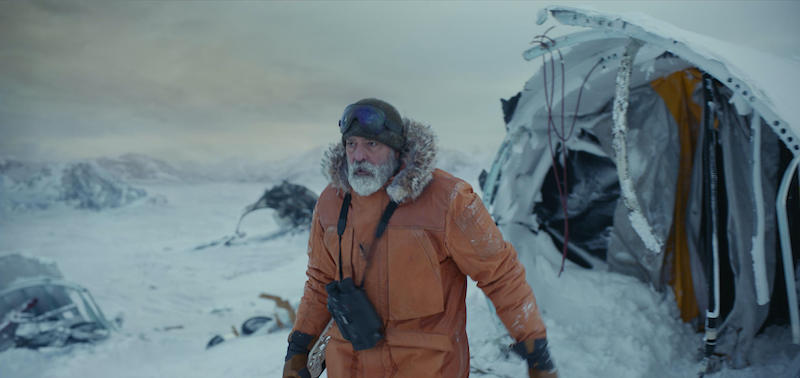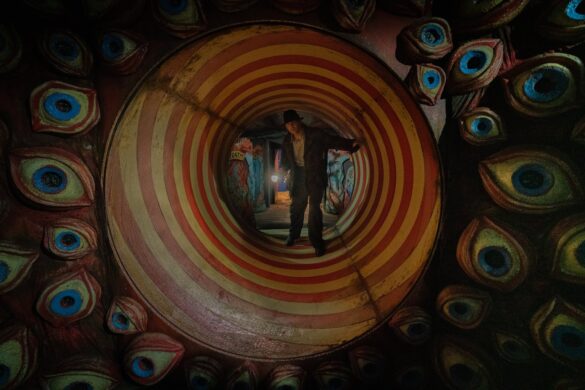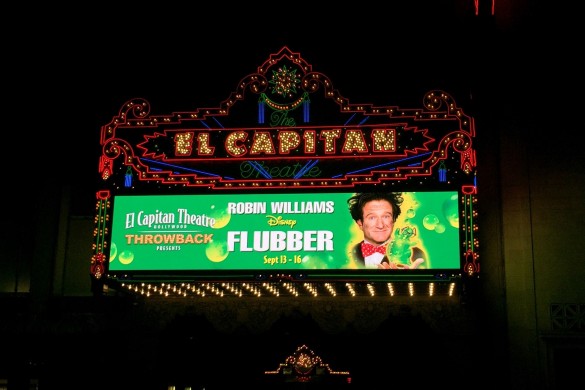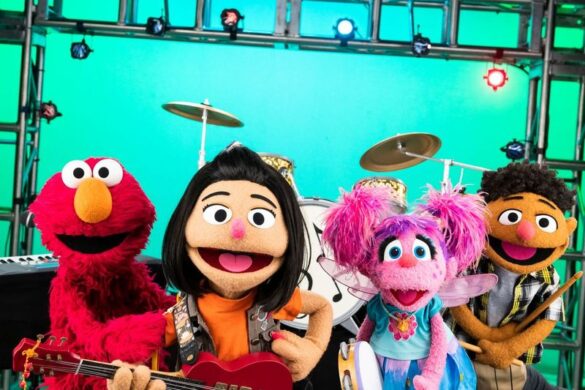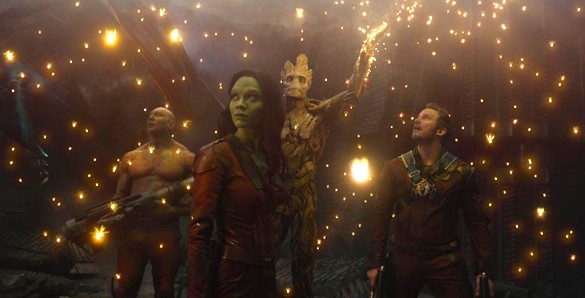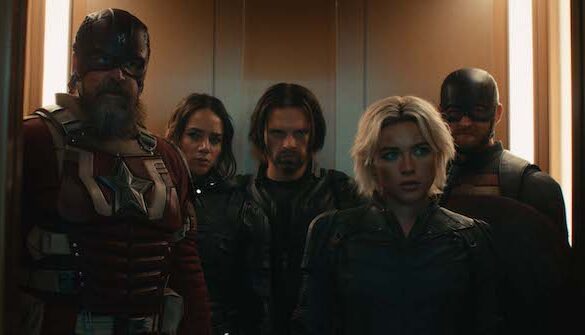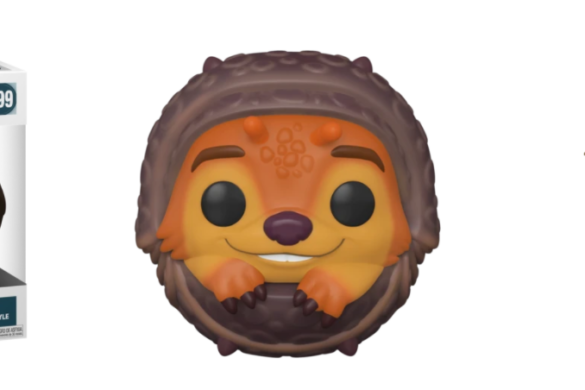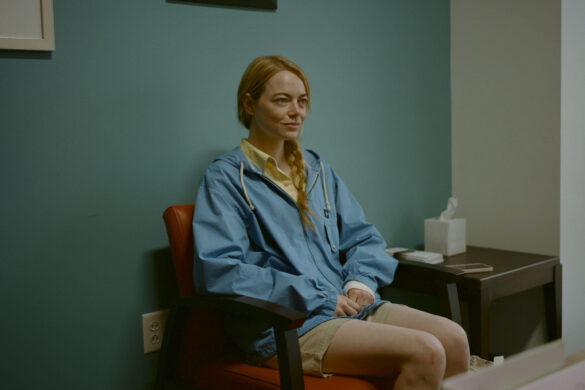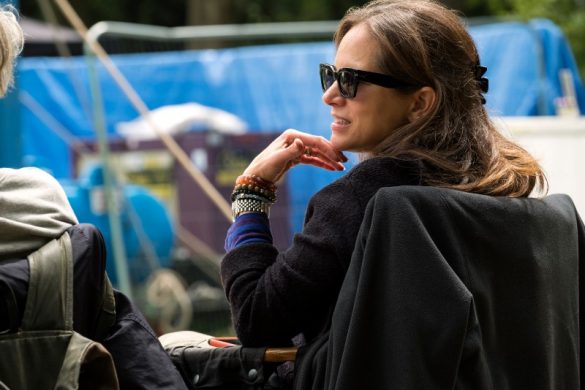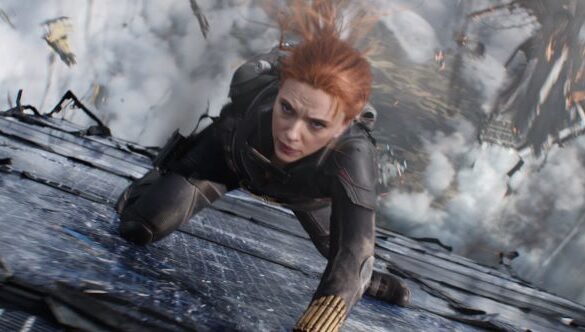Always cherish those connections and relationships because that feeling of isolation and loneliness can be as cold and silent as the depths of space itself. That seems to be the ongoing theme for these space films, especially George Clooney’s “The Midnight Sky.” The actor goes behind the camera once more for this ambitious space flick that mixes in a little bit of survivalist drama with space exploration. It’s quite the endeavor for the director who has never helmed a film of this size and scope rich with beautiful visual effects. But where it succeeds in its technical marks and music, it falters in its storytelling and one-note performances.
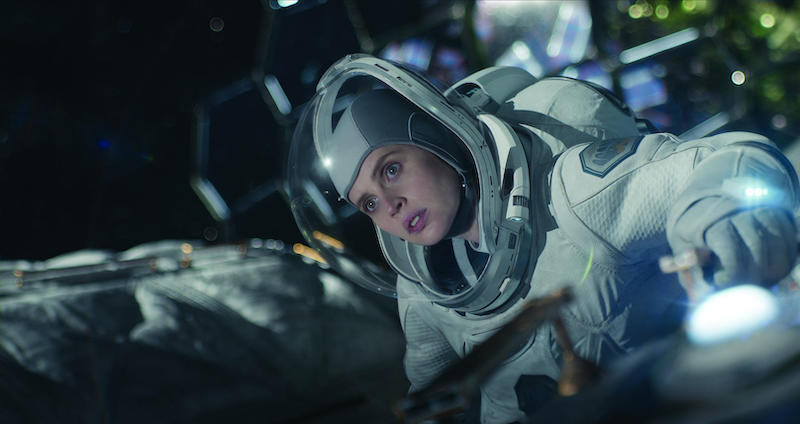
“The Midnight Sky” centers on Augustine (Clooney), a lonely grizzled cantankerous scientist stationed at the only functional satellite base in Antarctica. Alone, his forlorn attempts to hail the Aether, the only ship with an operational communication system, to warn them about a catastrophic event that has made Earth uninhabitable falls on deaf ears. Not only that, but his health is quickly deteriorating. He constantly needs transfusions and medications to stay alive. And on top of all of that, he has to take care of Iris, a small girl who has been living in the station unbeknownst to him.
Meanwhile, the Aether is returning home after their mission on K-23, a moon not too far off Jupiter’s orbit. Unaware of the situation that occurred on Earth, they have a perilous journey ahead of them because they cannot contact any of the bases. Unpredictable circumstances also make their mission more difficult and threaten the lives of everyone onboard the Aether.
So it’s a race against time as Augustine and Iris must find a way to reach another station so that they can warn the Aether crew about the dangerous conditions that await them on Earth.
For the most part, “The Midnight Sky” sounds excellent on paper and looks like a gripping watch, as teased by its trailer. But the two stories never come together as intended, making it as though they could have been separate installments. One a survivalist story, and another being about a journey home.
See, Augustine is by his lonesome on the base, with literally no way to make a human connection. Which only adds to his frustration when he discovers Iris. But there more to his despondency than what we see. Flashbacks reveal that though he was a charming and intelligent young man who discovered habitability on K-23 in a previous life, he always prioritized his work above everything else, resulting in him becoming the isolated person he is today.
And perhaps that was intentional to reinforce how distance isn’t defined by a physical gap that can be measured. So we get to see how a person can have an emotional distance. These flashbacks reveal how cold he is as a person and unmoved about tragic news, like his wife giving him the bad news that her pregnancy test came up negative. This gives Augustine has another chance at living the life that he’s missed out on because he dedicated himself to work and neglected to see the beauty of life that exists outside of it.
It may be simplistic in a sense, but you can see what Clooney was trying to achieve on an emotional level. Though the stakes are clearly established, it lacks a sense of urgency, especially when it comes to the Aether crew. Not only are these characters disconnected from each other in the film, but their stories also fail to make a connection that makes it seem as though they are on the same solar system.
Sure, the Aether want to get home, but they don’t express any desire to get home quickly. That probably has to do with the fact that many comforts of home are readily available onboard the ship. They can go to the gym, play interactive hologram games, relive their memories through a hologram, or take care of their onboard garden. And the camaraderie is there as well to keep the crew’s sanity intact.
Even if it feels like the mission has a heavy emotional toll, it doesn’t feel like it has affected the crew. At least not until some of the more distressing parts that delay their homecoming. And so it goes predictable moments where it tries to raise the stakes and push our characters to the brink. But by this time, it’s already too late. “The Midnight Sky” so already so far into its runtime that it’s hard to care what happens after that or if they will survive long enough to see themselves complete the mission.
Much of “The Midnight Sky’s” strength comes from Clooney’s perspective as he is the one who fully realizes the importance of reaching the Aether and the consequences that come with failure if he doesn’t live long enough to see it through. Not only that, but he has to care for a child. Something of which he says he cannot do. But Iris’s presence not only gives him a second chance, but it also helps with his character development, especially when the two have to journey to another satellite that has a stronger signal that is further away from their current location.
Though “The Midnight Sky” may be lacking in story and emotion, it comes through capturing the beauty and spirit of space and the harsh cold winters along with ravenous predatory beasts through its visual effects, production design, Martin Ruhe’s cinematography, and Alexandre Desplat’s splendid score. These technical aspects merge to create a wonderous appeal that looks like an IMAX nature documentary. If only the film were about that.
The Midnight Sky streams on Netflix December 23, 2020.

